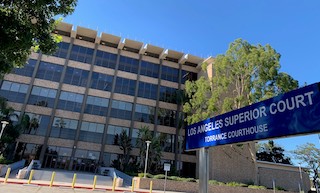What Are the Important New Criminal Laws for 2020?
As in every new year, our Legislature in Sacramento passes a multitude of new laws that become effective at the start of the new year. This year is no different in that regard. The following listing distills down all the new criminal laws to five new laws that we believe will have the most wide-ranging effect on folks in California. They are:
- Senate Bill 136 – This bill amends the one-year sentence enhancement for each prior prison or county jail felony term (under AB109) that applies to a defendant sentenced on a new felony by imposing the one-year sentence enhancement on a defendant sentenced on a new felony only if the defendant has a prior conviction for a sexually violent offense. This amends Penal Code § 667.5.
- Senate Bill 273 – This bill extends the statute of limitations for felony domestic violence from three years to five years and makes changes to domestic violence training for police officers. This act amends Section 13519 of, and adds Section 803.7 to, the Penal Code relating to domestic violence. The bill applies to crimes occurring after January 1, 2020 only and to crimes that occurred prior to January 1, 2020 for which the statute of limitations (three years) has not expired. In terms of the training to police officers being changed, the biggest new change is that training will mandate that the victim of domestic violence be interviewed separate from the suspect of committing domestic violence.
 Torrance Court
Torrance Court
- Assembly Bill 433 – This bill requires that the prosecutor be given two days’ written notice of a hearing for early termination of probation, and requires the prosecutor to notify the victim if the victim has asked to be notified about the case. This act amends Penal Code § 1203.4 of the Penal Code relating to probation. We think this act, once prosecutors and judges are aware of it, will end the common practice of someone in pro per walking into court and asking the judge to end his or her probation that day. Judges and prosecutors will apologetically tell the person representing themselves that two days’ written notice is required and that person will never come back to court because he or she will not understand what was said.
- Senate Bill 233. This bill prohibits the arrest of a person for misdemeanor drug or prostitution related offenses when the person is reporting a victim of violent crime and makes inadmissible evidence of possession of a condom to prove a violation of specified crimes related to prostitution. The act amends Section 1162 of, and repeals and adds Section 782.1 of, the Evidence Code, and to adds Section 647.3 of the Penal Code, relating to crime. We think this is a pretty big change in the law because we have seen prosecutors commonly argue that our client, arrested for solicitation of prostitution (Penal Code § 647(b)) had the intent to solicit prostitution because he had a condom with him in his wallet or pocket.
- Senate Bill 394. This bill authorizes the superior court, in agreement with the prosecuting entity and the public defender of the county, to establish a pretrial diversion program for primary caregivers of minor children (defined as a child under age 18), as specified, for those charged with a misdemeanor crime or a nonviolent, nonserious felony crime. The act adds Chapter 2.9E (commencing with Penal Code § 1001.83) to Title 6 of Part 2 of the Penal Code, relating to criminal procedure. This bill is much-overdue and allows a diversion program for those charged with child endangerment, for example. The diversion period would be no less than six months and no longer than 24 months. Participants in this program would be required to attend certain classes such as for anger management, parenting and financial literacy and receive assistance relating to housing, employment, drug and alcohol and mental health treatment. This program will be available both in juvenile and “adult” courts.
For more information about issues, please click on the following articles:
 Torrance Court
Torrance Court